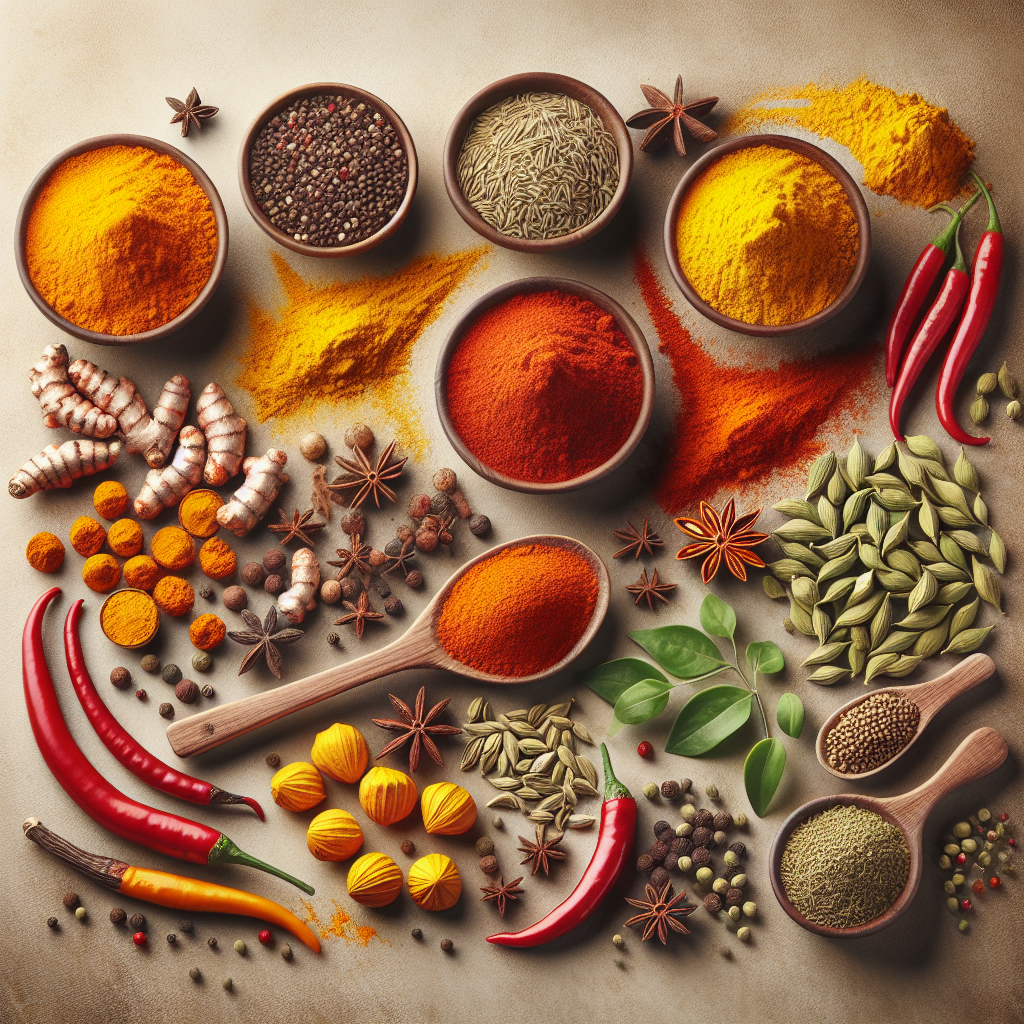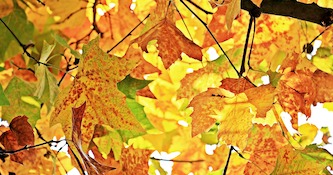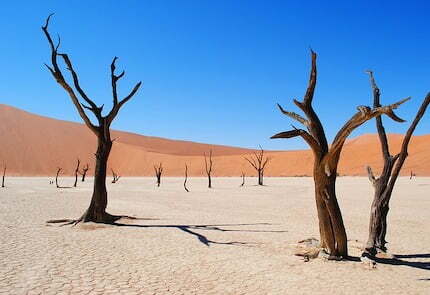The Dendrobium orchid, also known as the God Flower, is disappearing from the mountains of Alishan in Taiwan due to climate change. The Tsou people, an indigenous tribe, rely on this flower for their ceremonies and believe that without it, the gods will not be able to find them. In the past, the God Flower was abundant and could be found outside Tsou homes, but now the tribe has to venture deeper into the forests to find it. Climate change has caused the minimum temperatures in autumn and winter to gradually increase, making it difficult for the buds to form and bloom in the spring.
Taiwan as a whole has been experiencing more frequent droughts and warmer weather, which has affected not only the rituals of the Tsou people but also their livelihoods. Without typhoons, which are a vital source of water for the island, crops can fail. Farmers like Jui-Chiao Chung have had to adapt their farming practices due to continuous droughts. Ms. Chung has noticed that the coffee beans she grows are darker, indicating higher temperatures. One bad harvest can immediately reduce her income, and she is considering growing a different crop to mitigate the effects of climate change.
Unlike other crops, there is no substitute for the God Flower in the Tsou people’s rituals. Elder Gao Desheng fears the possibility of the flower disappearing and points to a large urn containing the dry remnants of what was once a blossoming God Flower. The flower is an essential part of their ceremonies, especially during the three-day Mayasvi festival. The Tsou men pin the leaves of the golden orchid on their hats to identify themselves as Tsou people and seek blessings from the war god Iafafeoi.
The Tsou tribe, one of the 16 officially recognized indigenous tribes in Taiwan, has lived on the island for thousands of years. They are mainly located in the Alishan mountains, where the God Flower grows. Elder Gao is concerned about the future of his tribe and hopes for support from the government. However, he feels that politicians do not address the serious impact of climate change on the Tsou people’s way of life. Greenpeace also criticizes the lack of sustainable environmental policies from the presidential candidates in Taiwan.
For the Tsou people, time is running out as the God Flower continues to vanish.
Original news source: Taiwan: The ‘God Flower’ vanishing because of climate change (BBC)
Listen:
Slow
Normal
Fast
Group or Classroom Activities
Warm-up Activities:
– News Summary
Instructions: Divide the class into pairs or small groups. Give each group a few minutes to read the article silently. Then, ask each group to summarize the main points of the article in their own words. Afterward, have each group share their summaries with the class.
– Opinion Poll
Instructions: Ask the class to form small groups. Assign each group a specific topic related to the article, such as “Climate Change,” “Indigenous Rights,” or “Environmental Policies.” Give the groups a few minutes to discuss their opinions on the topic and come up with at least three statements that represent their views. Then, have each group present their statements to the class and hold a class-wide poll to see which statements have the most support.
– Sketch It
Instructions: Provide each student with a piece of paper and a pencil or pen. Ask them to choose a specific scene or concept from the article and sketch it on their paper. Afterward, have each student share their sketch with a partner and explain the scene or concept they chose.
– Vocabulary Pictionary
Instructions: Write a list of vocabulary words from the article on the board. Divide the class into two teams. One student from each team will come to the front of the class and choose a word from the list. They must then draw a picture on the board to represent that word, without using any letters or numbers. The rest of their team must try to guess the word based on the drawing. The team that guesses correctly earns a point.
– Future Predictions
Instructions: In pairs or small groups, ask the students to discuss and make predictions about the future of the God Flower and the Tsou people. They should consider the potential impacts of climate change and the actions that the government and society could take to support the Tsou people. Afterward, have each group share their predictions with the class.
Comprehension Questions:
1. What is the significance of the Dendrobium orchid, or God Flower, to the Tsou people?
2. How has climate change affected the availability of the God Flower in the mountains of Alishan?
3. What are some of the impacts of climate change on the livelihoods of the Tsou people?
4. How have droughts and warmer weather affected farming practices in Taiwan?
5. Why is it difficult for the Tsou people to find a substitute for the God Flower in their rituals?
6. What is the Mayasvi festival and why is the God Flower important during this event?
7. How long have the Tsou people been living on the island of Taiwan?
8. What concerns does Elder Gao Desheng have about the future of his tribe and the government’s response to climate change?
Go to answers ⇩
Listen and Fill in the Gaps:
The Dendrobium (1)______, also known as the God Flower, is disappearing from the mountains of Alishan in Taiwan due to climate change. The Tsou people, an indigenous (2)______, rely on this flower for their ceremonies and believe that without it, the gods will not be able to find them. In the past, the God Flower was abundant and could be (3)______ outside Tsou homes, but now the tribe has to venture deeper into the forests to find it. Climate change has caused the minimum (4)______ in autumn and winter to gradually increase, making it difficult for the buds to form and bloom in the spring.
Taiwan as a whole has been experiencing more frequent droughts and warmer weather, which has affected not only the rituals of the Tsou people but also their livelihoods. Without typhoons, which are a (5)______ source of water for the island, crops can fail. (6)______ like Jui-Chiao Chung have had to adapt their farming (7)______ due to continuous droughts. Ms. Chung has noticed that the coffee beans she grows are darker, indicating higher temperatures. One bad harvest can immediately (8)______ her income, and she is considering growing a different crop to mitigate the effects of climate (9)______.
Unlike other crops, there is no (10)______ for the God Flower in the Tsou people’s rituals. Elder Gao Desheng fears the possibility of the flower disappearing and points to a large urn (11)______ the dry remnants of what was once a blossoming God Flower. The flower is an essential part of their ceremonies, especially during the three-day Mayasvi festival. The Tsou men pin the leaves of the golden orchid on their hats to (12)______ themselves as Tsou people and seek blessings from the war god Iafafeoi.
The Tsou tribe, one of the 16 officially recognized indigenous tribes in Taiwan, has lived on the (13)______ for thousands of years. They are mainly located in the (14)______ mountains, where the God Flower grows. Elder Gao is concerned about the future of his tribe and hopes for support from the government. However, he (15)______ that politicians do not address the serious impact of climate change on the Tsou people’s way of life. Greenpeace also criticizes the lack of sustainable environmental policies from the (16)______ candidates in Taiwan.
For the Tsou people, time is running out as the God Flower continues to vanish.
Go to answers ⇩
Discussion Questions:
Students can ask a partner these questions, or discuss them as a group.
1. What is the significance of the God Flower in the ceremonies of the Tsou people?
2. How do you think the Tsou people feel about the disappearance of the God Flower?
3. Do you think climate change is a serious issue? Why or why not?
4. How would you feel if a plant or flower that is important to your culture started disappearing?
5. Do you think the government should do more to support indigenous tribes like the Tsou people? Why or why not?
6. What other effects do you think climate change could have on indigenous tribes or their way of life?
7. Do you think climate change is a global problem or just a problem for specific regions? Why or why not?
8. How do you think the Tsou people could adapt their rituals if the God Flower disappears completely?
9. What other solutions do you think the Tsou people could explore to mitigate the effects of climate change on their way of life?
10. Do you think it is important for presidential candidates to have sustainable environmental policies? Why or why not?
11. How do you think the Tsou people’s livelihoods have been affected by climate change?
12. What other ways do you think climate change could impact agriculture and farming practices?
13. Do you think it is the responsibility of individuals or governments to address climate change? Why or why not?
14. How do you think the Tsou people’s culture and traditions could be preserved in the face of climate change?
15. What other steps do you think can be taken to raise awareness about the impact of climate change on indigenous tribes?
Individual Activities
Multiple Choice Questions:
1. What is the other name for the Dendrobium orchid?
(a) Golden Orchid
(b) Tsou Flower
(c) God Flower
(d) Alishan Orchid
2. Why is the God Flower disappearing from the mountains of Alishan?
(a) Deforestation
(b) Pollution
(c) Overharvesting
(d) Climate change
3. What indigenous tribe relies on the God Flower for their ceremonies?
(a) Atayal people
(b) Tsou people
(c) Paiwan people
(d) Bunun people
4. How has climate change affected the minimum temperatures in autumn and winter?
(a) They have gradually increased
(b) They have gradually decreased
(c) They have remained the same
(d) They have fluctuated unpredictably
5. What is a vital source of water for the island of Taiwan?
(a) Rivers
(b) Underground wells
(c) Typhoons
(d) Desalination plants
6. How have warmer temperatures affected the coffee beans grown by Jui-Chiao Chung?
(a) They have become darker
(b) They have become lighter
(c) They have become larger
(d) They have become smaller
7. Why is the God Flower essential for the Tsou people’s rituals?
(a) It is believed to bring good luck
(b) It is a symbol of their tribe
(c) It is used as an offering to the gods
(d) There is no substitute for it
8. What organization criticizes the lack of sustainable environmental policies from the presidential candidates in Taiwan?
(a) World Wildlife Fund
(b) Greenpeace
(c) United Nations
(d) Friends of the Earth
True or False Questions:
1. The Dendrobium orchid, also known as the God Flower, is thriving in the mountains of Alishan in Taiwan.
2. Climate change has caused the minimum temperatures in autumn and winter to gradually decrease in Alishan.
3. The Tsou people, an indigenous tribe, rely on the God Flower for their ceremonies.
4. The Tsou people believe that without the God Flower, the gods will not be able to find them.
5. Greenpeace praises the presence of sustainable environmental policies from the presidential candidates in Taiwan.
6. The droughts and warmer weather have affected the rituals and livelihoods of the Tsou people.
7. Taiwan has been experiencing more frequent droughts and warmer weather.
8. With typhoons, crops in Taiwan can fail due to lack of water.
Go to answers ⇩
Write a Summary:
Write a summary of this news article in two sentences.
Writing Questions:
Answer the following questions. Write as much as you can for each answer.
1. How has climate change affected the availability of the God Flower for the Tsou people?
2. What are the consequences of the disappearing God Flower on the rituals and ceremonies of the Tsou people?
3. How has climate change affected the livelihoods of farmers in Taiwan?
4. Why is the God Flower important to the Tsou people’s identity and cultural practices?
5. What concerns does Elder Gao Desheng have about the future of his tribe and how does he hope to address them?
Answers
Comprehension Question Answers:
1. The Dendrobium orchid, or God Flower, is significant to the Tsou people because they rely on it for their ceremonies and believe that without it, the gods will not be able to find them. The flower is also an essential part of their rituals, especially during the three-day Mayasvi festival.
2. Climate change has affected the availability of the God Flower in the mountains of Alishan by causing the minimum temperatures in autumn and winter to gradually increase. This makes it difficult for the buds to form and bloom in the spring.
3. Climate change has impacted the livelihoods of the Tsou people by causing more frequent droughts and warmer weather. Without typhoons, which are a vital source of water for the island, crops can fail. Farmers have had to adapt their farming practices and some are considering growing different crops to mitigate the effects of climate change.
4. Droughts and warmer weather have affected farming practices in Taiwan by causing crops to fail. Farmers have had to adapt their practices and some have noticed changes in their crops, such as coffee beans being darker, indicating higher temperatures. One bad harvest can immediately reduce income.
5. It is difficult for the Tsou people to find a substitute for the God Flower in their rituals because there is no other flower or plant that holds the same significance and symbolism for their ceremonies. The God Flower is unique and cannot be replaced.
6. The Mayasvi festival is a three-day event that is important to the Tsou people. During this festival, the Tsou men pin the leaves of the golden orchid on their hats to identify themselves as Tsou people and seek blessings from the war god Iafafeoi. The God Flower is important during this festival because it is a key element of their rituals and symbolizes their connection to the gods.
7. The Tsou people have been living on the island of Taiwan for thousands of years.
8. Elder Gao Desheng is concerned about the future of his tribe and the government’s response to climate change. He hopes for support from the government but feels that politicians do not address the serious impact of climate change on the Tsou people’s way of life. Greenpeace also criticizes the lack of sustainable environmental policies from the presidential candidates in Taiwan.
Go back to questions ⇧
Listen and Fill in the Gaps Answers:
(1) orchid
(2) tribe
(3) found
(4) temperatures
(5) vital
(6) Farmers
(7) practices
(8) reduce
(9) change
(10) substitute
(11) containing
(12) identify
(13) island
(14) Alishan
(15) feels
(16) presidential
Go back to questions ⇧
Multiple Choice Answers:
1. What is the other name for the Dendrobium orchid?
Answer: (c) God Flower
2. Why is the God Flower disappearing from the mountains of Alishan?
Answer: (d) Climate change
3. What indigenous tribe relies on the God Flower for their ceremonies?
Answer: (b) Tsou people
4. How has climate change affected the minimum temperatures in autumn and winter?
Answer: (a) They have gradually increased
5. What is a vital source of water for the island of Taiwan?
Answer: (c) Typhoons
6. How have warmer temperatures affected the coffee beans grown by Jui-Chiao Chung?
Answer: (a) They have become darker
7. Why is the God Flower essential for the Tsou people’s rituals?
Answer: (d) There is no substitute for it
8. What organization criticizes the lack of sustainable environmental policies from the presidential candidates in Taiwan?
Answer: (b) Greenpeace
Go back to questions ⇧
True or False Answers:
1. The Dendrobium orchid, also known as the God Flower, is thriving in the mountains of Alishan in Taiwan. (Answer: False)
2. Climate change has caused the minimum temperatures in autumn and winter to gradually decrease in Alishan. (Answer: False)
3. The Tsou people, an indigenous tribe, rely on the God Flower for their ceremonies. (Answer: True)
4. The Tsou people believe that without the God Flower, the gods will not be able to find them. (Answer: True)
5. Greenpeace praises the presence of sustainable environmental policies from the presidential candidates in Taiwan. (Answer: False)
6. The droughts and warmer weather have affected the rituals and livelihoods of the Tsou people. (Answer: True)
7. Taiwan has been experiencing more frequent droughts and warmer weather. (Answer: True)
8. With typhoons, crops in Taiwan can fail due to lack of water. (Answer: False)
Go back to questions ⇧













